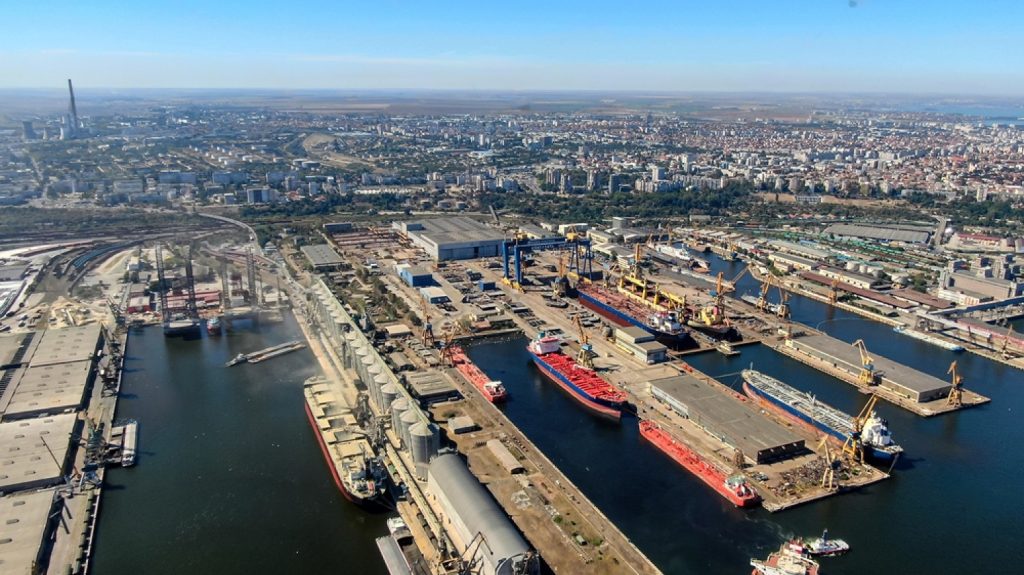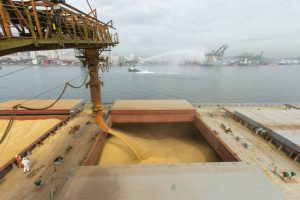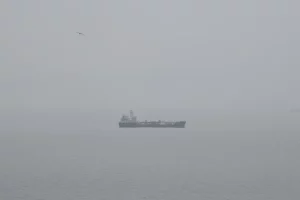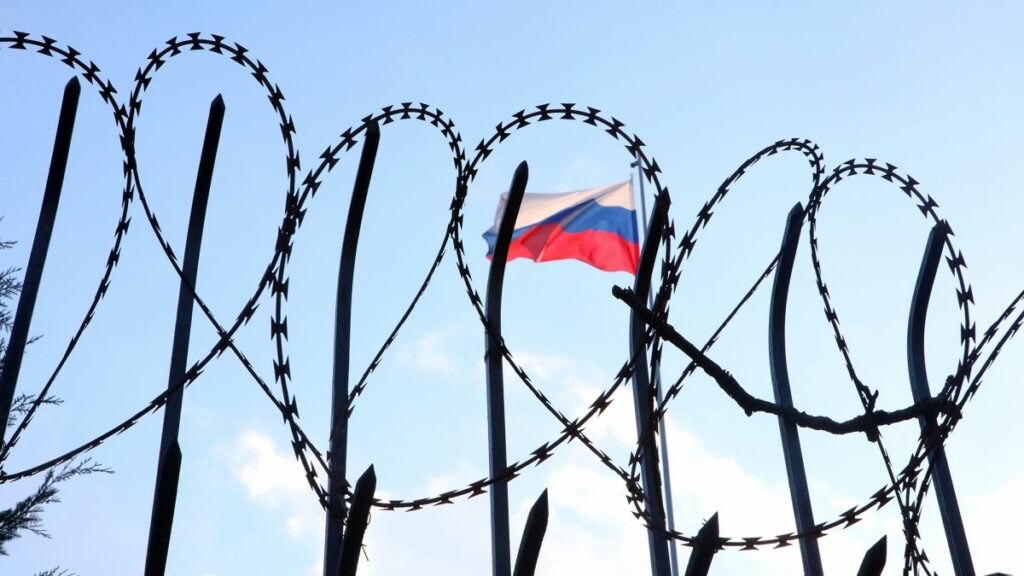Fuel supplies from the port of Constanta are under threat: will fuel prices increase?

The supply of petroleum products from the Romanian port of Constanta, which is one of the key ones for the Ukrainian market, may be subject to sanctions as early as October 1, 2025.
This is not the first attempt to restrict the activities of the Romanian hub. For the first time, such a decision was discussed in the summer of 2024, but then it was blocked under pressure from Romania and the EU. However, now Ukraine is threatened with the loss of a key partner, a change in logistics routes and, at worst, an increase in fuel prices within the country.
USM understood the situation and spoke with the head of the A-95 Consulting Group, Serhiy Kuyun, as well as other market participants.
Will fuel prices increase?
Earlier, information appeared on the market that Ukraine may introduce “sanctions” against fuel supplies from Constanta. The decision is related to the expansion of the practice of laboratory testing of imported fuel, which currently includes supplies from Turkey, Georgia and Moldova. From October 2025, fuel of Indian production may be added to this list – in particular, from the world’s largest refinery of Reliance Industries in Jamnagar and the port of Sikka, from where it is shipped.
According to sources, the main argument for a possible sanction of Constanta was suspicions in the port’s work with Turkish and Indian resources, which are indirectly related to Russian raw materials.
The head of the A-95 Consulting Group, Sergey Kuyun, said on Facebook: if supplies from Constanta are subject to similar control, this would be about a quarter of diesel imports.
Market participants told USM that Ukraine currently imports up to approximately 59% of Indian diesel through the port of Constanta. This is a significant volume that is difficult to quickly compensate for, especially on the eve of the autumn-winter season and against the background of the loss of domestic capacity (in particular, after the destruction of the Kremenchuk Refinery).
In addition, in the event of the imposition of sanctions, it can be expected that Ukraine will spoil relations with Romania, which sees our country as an important strategic partner. Thus, the situation currently does not look optimistic: according to preliminary forecasts, the cost of fuel in Ukraine may increase by at least 1-2 UAH.
There is also an opinion that an alternative option may be to supply fuel directly by small vessels via the Sulina Canal. However, as USM has learned, the Romanian government is currently preparing new rules for the passage of vessels through the canal – an option is being considered that from November only one tanker per day will be able to pass through this waterway, which will greatly reduce the throughput capacity of the mouth. It is also worth mentioning the classic autumn storm season, which also has a strong impact on logistics.
At the same time, experts note that there is also a security problem. By standing in queues and creating traffic jams in Ukrainian ports due to the reformatting of logistics, tankers can become an easy target for Russian attacks. Thus, it is not only about rising prices and problems with logistics, but also environmental safety, since the sinking of a tanker will inevitably lead to a catastrophe.
In turn, shipowners will definitely take these risks into account. Sanctions on the port of Constanta will leave Ukrainian importers with only one option: to import fuel from Greece by sea tankers. In the event of sanctions on the port of Constanta, Greek exporters will actually be able to set their own prices, since they will have no competitors.
This, as well as the above-mentioned factors, will make logistics more expensive, which in turn will affect the price of fuel in Ukraine – and then the price increase will be inevitable. And in the worst case scenario – a shortage.
Other issues
In his Facebook post, Serhiy Kuyun separately criticized the selectivity of the approaches, starting with imports from the STAR refinery, which simultaneously processes oil from the Russian Lukoil, and ending with inaction towards Slovakia and Hungary.
One of the complaints is about the internal state of the market: the problem is not only in external suppliers, but also in systemic smuggling schemes and tax “tricks” that allow certain players to profit not from the real margin on the product, but from the schemes around it. Because of this, transparent suppliers often work without a margin, and the market remains vulnerable to attempts to artificially stimulate “pseudo-sanctions”.
In conclusion, Kuyun says that Ukraine faces two scenarios: either to abandon the radical blocking of supplies from certain ports and not to expose itself, or to introduce sanctions against large hubs, but at the same time to be prepared for price increases and tension in the market, in fact, to expect a strong increase in the cost of fuel in Ukraine.
Fuel checks vs. sea freight costs
USM also separately addressed the head of the A-95 Consulting Group, Serhiy Kuyun. As the expert noted, it is realistic for Ukraine to gradually abandon fuel imports from India and Turkey, because there are enough alternative resources on the global market. At the same time, he emphasizes that such a step cannot be taken abruptly in order to avoid a fuel shortage.
“I believe that this is quite realistic. There are enough other resources on the global market, and therefore the only thing that needs to be done here is not to “cut, and then you, they say, look for it there”. This must be done gradually. That is, so that there are no “shocks”,” Kuyun commented.
According to him, the example of the European Union shows the expediency of a phased approach: when sanctions were adopted there regarding petroleum products, countries were given enough time to adapt. The situation with Constanta is similar — because not only Turkish or Indian resources, but also other supplies go through this port. Therefore, traders need time to restructure their activities and look for new sources instead of Indian or Turkish fuel.
The head of the A-95 Consulting Group also explained that consultations are currently underway with the participation of government officials, state bodies and key market participants. The purpose of such negotiations is to limit the access to toxic resources, but not to harm the stability of supplies.
According to Kuyun, there will be no complete blockage of imports from Constanta, but a bigger problem will be providing the country with winter grades of diesel fuel: Indian fuel withstands low temperatures well, while the products of Mediterranean refineries often freeze already at -5.
In one of his Facebook posts, Serhiy Kuyun said that Turkey, like fuel of Indian origin, “should go into the ban, but there are nuances.” In a conversation with USM, he explained that the supply of Turkish fuel differs from Indian fuel due to the presence of exceptions. Thus, almost all Turkish ports fall under sanctions inspections, except for the port of Aliaga, which serves the STAR plant of SOCAR (State Oil Company of the Republic of Azerbaijan, — ed.). Supplies from this plant continue to arrive in Constanta and Ukraine and are currently not subject to inspections.
Kuyun added that the specifics lie in the control of customs officers and resource documentation. Another Turkish plant, Tüpraş, falls under sanctions, although it does not process Russian oil. According to the expert, the selective application of sanctions is due to the fact that the main problem is the transshipment of Russian diesel fuel through Turkish ports. Delivery documents can be changed so that Russian fuel legally becomes Turkish or Indian, which creates risks of circumventing restrictions.
Kuyun emphasized that the purpose of the sanctions is not to restrict the operation of plants, but to control the ports through which fuel is transported in order to avoid the resale of resources of Russian origin to the Ukrainian market.
What will happen to fuel supplies from the port of Constanta?
Regarding the possible sanctions pressure on the port of Constanta, Serhiy Kuyun explained that this is not a direct embargo, but increased control over supplies from this direction. According to him, in practical terms this means laboratory tests of each vessel arriving at the port.
Kuyun added that such checks can make logistics more expensive due to delays and demurrage – payment for vessel downtime. In the conditions of the legislative limitation of the inspection duration to 12 days, the cost of demurrage can reach $15-20 per ton of fuel. However, as another market participant told USM, the demurrage will be at least $20 per ton
Separately, Serhiy Kuyun noted that the market already has experience with supply restrictions: for example, after sanctions against Turkish ports, in 2024, supplies from Turkey to Ukraine practically stopped, and this year only one or two small batches arrive here per month.
When asked whether the port of Constanta was trying to offer alternative solutions to the problem, the speaker replied that the port had already received a signal from Ukraine regarding the risk of sanctions. He recalled that this port is state-owned and greatly values the Ukrainian direction, because back in 2022 its infrastructure was in a neglected state and was almost not used.
“When the big war began, it became a real hub for supplies to Ukraine. And it earned a lot of money from this, partially modernized and continues to do so — for example, they developed bulk terminals and other infrastructure there. We are their main client — of course, they are forced to respond to this,” Cuiun explained.
Now, according to his information, consultations are already underway with traders, who are informed about possible risks and urged to look for solutions.
Thus, Ukraine now needs to carefully choose its action plan, as not only the already expensive fuel is at risk, but also the safety of shipping, logistics routes, and relations with one of its neighbors, Romania.





